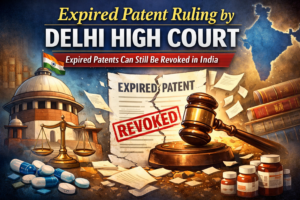The Supreme Court of India has dismissed the Competition Commission of India’s (CCI) plea seeking permission to investigate alleged anti-competitive practices in a patents dispute. The decision came on September 5, 2025, and upheld the Delhi High Court’s earlier order.
Background of the Case
The case involved Telefonaktiebolaget LM Ericsson and Monsanto Holding Private Limited. Both companies faced allegations of imposing unfair licensing terms for their standard-essential patents. The informants had earlier approached the CCI, claiming violations of Section 3 and Section 4 of the Competition Act, 2002.
The Delhi High Court, however, quashed the investigation. It held that once the informants reached a settlement with the companies, there was no reason for the CCI to continue the probe. The court also stressed that the Patents Act provided the legal framework for addressing licensing disputes.
CCI’s Argument
The CCI challenged the High Court’s decision through a Special Leave Petition (SLP). It argued that it retained authority to examine whether patent holders abused their dominant position in the market. The regulator claimed that restricting its jurisdiction would weaken competition law enforcement.
Supreme Court’s Ruling
A bench of Justice J.B. Pardiwala and Justice Sandeep Mehta dismissed the CCI’s appeal. The judges said the High Court’s order required no interference, as the informants had settled their grievances. They also noted that the inquiry overlapped with the statutory role of the Controller of Patents.
The Court clarified that its decision was limited to this case. It left open the possibility of re-examining the issue of overlap between competition law and patent law in future disputes.
Implications
The ruling reinforces the primacy of the Patents Act when disputes involve licensing terms and royalty payments. It also highlights the limits of the CCI’s role when cases fall within the domain of intellectual property law.
Legal experts believe the decision could influence future disputes involving technology licensing, biotech patents, and pharmaceutical patents. The judgment sends a clear message that patent law takes precedence, but it does not entirely close the door for competition scrutiny in other contexts.





